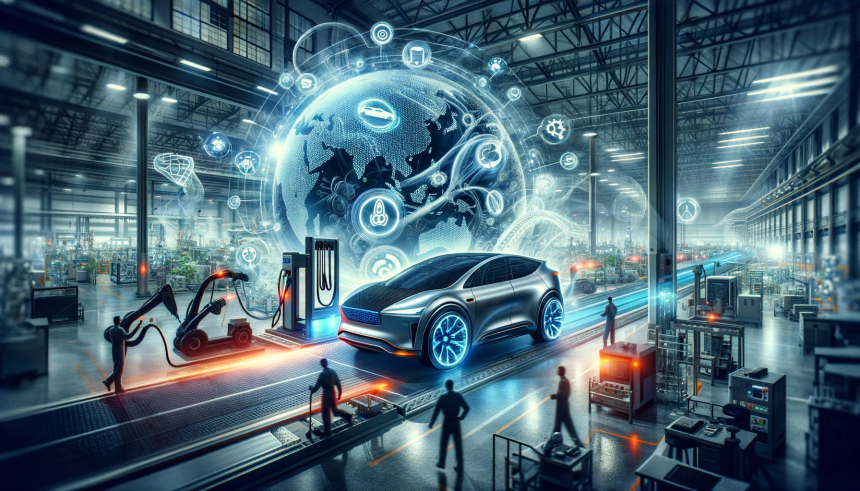The automobile industry is going through a fundamental transformation like none before. The front-runners in the fight against climate change and lowering carbon emissions are electric cars, or EVs. The electric vehicle production requirements, a set of government regulations intended to hasten the switch from traditional internal combustion engines to more environmentally friendly EVs, are at the heart of this revolutionary change. This article explores the consequences of these regulations for producers, consumers, and the global environment, delving into their complex effects.
Interpreting EV Production Requirements
Regulations requiring automakers to devote a significant percentage of their manufacturing capacity to electric cars are known as electric vehicle production mandates. These instructions serve as the cornerstone of more comprehensive government plans.
intended to lessen dependency on fossil fuels and reduce greenhouse gas emissions. Leading the way, countries like the USA, China, and members of the EU have implemented a variety of regulations and incentives to support the EV manufacturing and adoption scenario.
Industry Transformation Catalyst
Mandates for EV manufacturing are a double-edged sword for automakers. They pose enormous obstacles that need for a radical redesign of production processes, supply chain organization, and technology uptake. However, they also provide doors for new ideas and market growth. In order for manufacturers to successfully traverse this shift, they must invest in research and development in order to build EVs that are not only highly efficient and performing but also reasonably priced.
Consumer Dynamics: Juggling Accessibility and Cost
Concerns about customer accessibility and cost are brought up by the introduction of EVs. Production requirements may democratize the accessibility of electric cars and result in lower costs by enabling larger-scale manufacturing. Simultaneously, government incentives such as subsidies and tax credits are essential in lowering the cost of EVs for a larger group of consumers.
The Path to Sustainability and Its Implications for the Environment
The main motivation for the manufacture of EVs is environmental conservation. EVs provide significant carbon emission savings, particularly when paired with renewable energy sources. However, there are major obstacles to sustainability in the form of the expense of producing and disposing of batteries, as well as the need for a responsible battery material supply chain.
Infrastructure: The Basis for EV Uptake
For EV manufacturing rules to be implemented effectively, a strong infrastructure for charging is required. In order to expand the network of charging stations and increase the usability and convenience of EVs, this project combines both public and private sector involvement.
The Worldwide Cooperation Initiative
The switch to electric cars is a worldwide endeavor that calls for cooperation across nations. Facilitating the transfer to a sustainable automobile future via knowledge sharing, harmonizing environmental rules, and developing mutually advantageous market incentives are essential for a seamless transition.
To Sum Up
Mandates for the manufacturing of electric vehicles are essential for guiding the automobile sector toward a more environmentally friendly and sustainable future. Even if these regulations provide significant difficulties for automobiles
they also open the door to important developments and expansion possibilities. This change signals to customers the arrival of more easily available and ecologically friendly transportation choices in the future. Nonetheless, cooperation between governments, businesses, and consumers is essential to the accomplishment of these requirements. As we get closer to 2024 and beyond, a more environmentally friendly and cleaner transportation future will be shaped by our shared commitment to sustainable mobility. In addition to serving as legislative requirements, the standards for electric vehicles also serve as lighthouses that point the way toward a more ethical and ecological automobile industry.








